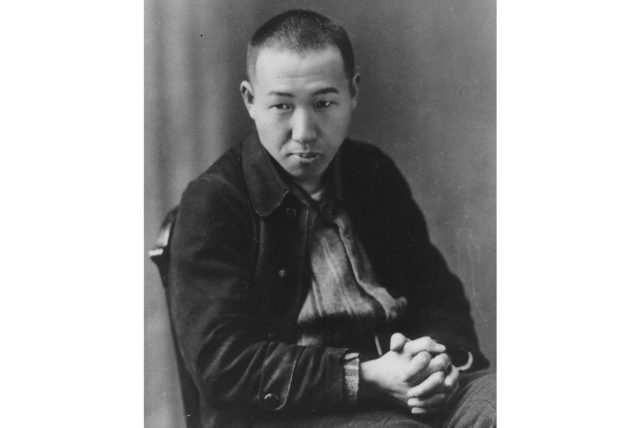By David Yamaguchi, The North American Post
AS I WRITE THIS, Seattle is tying its January rain record, not in total rainfall, but in its 28 days of measurable rain. That 2020 record follows on the heels of a 2019 April record of 12 days. The January record matches that recorded in 2006 and in 1953. The April record surpasses that of 11 days, set in 1955.
While I am no climatologist, the Big Picture is that a warmer North Pacific Ocean and atmosphere over it allow clouds to retain more moisture, which they must drop on Seattle before passing over the Cascade Mountains.
What is a Seattleite to do?
In surfing the web on another topic, I stumbled on the perfect answer. It is to simply “Be not defeated by the rain.”
The mindset is explained so well in a poem I happened on, that I will simply turn to it directly. It was originally set to paper something like this:
“Ame ni mo makezu
Kaze ni mo makezu
Yuki nimo natsu no atsusa nimo makenu
Joubu no karada wo mochi
Yoku wa naku
Kesshite ikarazu
Itsumo shizuka ni waratte iru
Ichinichi ni genmai yongou to
Miso to sukoshi no yasai wo tabe
Arayuru koto wo
Jibun wo kanjou ni irezu ni
Yoku mikiki shi wakari
Soshite wasurezu
Nohara no matsu no hayashi no kage no
Chiisa na kayabuki no koya ni ite
Higashi ni byoki no kodomo areba
Itte kanbyou shite yari
Nishi ni tsukareta haha areba
Itte sono ine no taba wo oi
Minami ni shinisou na hito areba
Itte kowagaranakutemo ii to ii
Kita ni kenka ya soshou ga areba
Tsumaranai kara yamero to ii
Hideri no toki wa namida wo nagashi
Samusa no natsu wa orouro aruki
Minna ni dekunobou to yobare
Homerare mo sezu
Ku nimo sarezu
Sou iu mono ni
Watashi wa naritai.”
In translation, it reads:
“Be not defeated by the rain. Nor let the wind prove your better. Succumb not to the snows of winter. Nor be bested by the heat of summer.
“Be strong in body. Unfettered by desire. Not enticed to anger. Cultivate a quiet joy.
“Count yourself last in everything. Put others before you.
“Watch well and listen closely. Hold the learned lessons dear.
“A thatch-roof house, in a meadow, nestled in a pine grove’s shade. A handful of rice, some miso, and a few vegetables to suffice for the day.
“If, to the East, a child lies sick: Go and nurse him to health.
“If, to the West, an old lady stands exhausted: Go and relieve her of burden.
“If to the South, a man lies dying: Go with words of courage to dispel his fear.
“If, to the North, an argument or fight ensues: Go and beg them stop such a waste of effort and of spirit.
“In times of drought, shed tears of sympathy. In summers cold, walk in concern and empathy.
“Stand aloof of the unknowing masses: Better dismissed as useless than flattered as a ‘Great Man.’
“This is my goal, the person I strive to become.”
Today, the poem is known widely as “Ame ni mo makezu,” by Kenji Miyazawa (1896-1933). The translation is that of David Sulz (www.kenji-world.net/english/download/works/Rain.html).
New to me, it is taught in Japanese public schools, according to Atsuko Savorgino and Arisa Nakamura, of the front office of the Japanese Community and Cultural Center. I managed to only read about three lines to them before they identified the poet.
Mr. Miyazawa lived in Hanamaki, a city near Morioka, the latter being a stop on the Tohoku shinkansen line. A sickly person, he died early, of pneumonia, after which the poem was found in a notebook in one of his trunks.
While I am not normally a person taken by poetry, Miyazawa-san’s words seem good enough to provide guidance to us through both the gray physical days of our Northwest lives, and the shades-of-gray behaviors of others that challenge us now and then. Instead they reflect the traits of the best people I know. The poem reminds me that I need to work on being more like them, and on letting minor issues go.
Culturally, the poem also reminds me that despite three decades of internet, that there are still things that Japanese people know that Americans do not. I wonder what else is out there, like this poem.
PS. “Ame ni mo makezu” has also been set to music. See YouTube.








